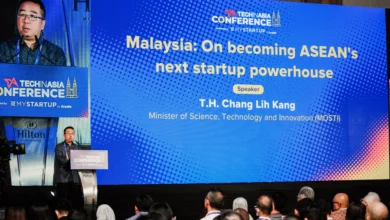BasiGo from Kenya raised $6.6 M to begin selling electric buses

For the purpose of starting the commercial supply of locally produced electric buses and charging infrastructure, the Kenyan company BasiGo has received US $6.6 million.
The firm offers modern electric buses to bus operators together with charging and maintenance services. By using a financing approach that lets users pay for the battery and charging separately from the bus through a pay-as-you-go financing structure, the startup makes these vehicles cheap.
In order to help it commercialize its business model and start local assembly of electric buses, BasiGo obtained US $4.3 million in early capital back in February. Now, it has added another US $6.6 million to that sum in order to start delivering these buses and the necessary charging infrastructure.
The investment is being led by Mobility54, the corporate venture capital arm of Toyota Tsusho, Trucks VC, a Silicon Valley venture capital firm that focuses on the transportation sector, and Novastar Ventures, a global VC that supports businesspeople reshaping African markets. The Susquehanna Foundation, My Climate Journey (MCJ), Keiki Capital, and OnCapital have also invested in it.
“BasiGo is thrilled to have the backing of investors who are leaders in the automotive sector and climate finance,” said Jit Bhattacharya, CEO of BasiGo. “Over 90 percent of Kenya’s electricity already comes from renewables. Yet Kenya’s transport sector relies entirely on imported petroleum fuels. By electrifying Kenya’s public transport, we can make an immediate dent in climate emissions, clean up the air in our cities, and give bus owners relief from the rising cost of diesel. With this new funding, BasiGo is ready to bring the benefits of state-of-the-art electric transport to all people in Africa.”
Over 100,000 privately owned matatus, or buses and minibusses, are used in Kenya’s public transportation system. In conjunction with Citi Hoppa and East Shuttle, two bus companies in Nairobi, BasiGo’s electric buses have traveled more than 110,000 kilometers and carried more than 140,000 people. In addition to recently announcing collaborations with KCB Bank and Family Bank to offer up to 90% financing to owners for the purchase of an electric bus, BasiGo has already received over 100 bookings from clients.
“We strongly believe in the potential of electric buses in Africa,” said Takeshi Watanabe, CEO of Mobility54. “BasiGo’s strong capability to implement the concept and its cutting-edge technology is the key to transforming conventional diesel buses to environmentally-friendly electric buses. We are extremely excited to build a solid partnership with BasiGo, and to support their growth by fully leveraging the business assets under Toyota Tsusho and CFAO.”
The following 15 electric buses from BasiGo will be delivered in January and put into service with a number of Nairobi’s biggest bus companies. To accommodate this larger fleet, BasiGo has already started placing high-power, DC fast-charging stations in key areas of Nairobi. The firm plans to deploy over 1,000 electric buses in Kenya by the end of 2025. All buses supplied in 2023 will be domestically produced in Kenya.




